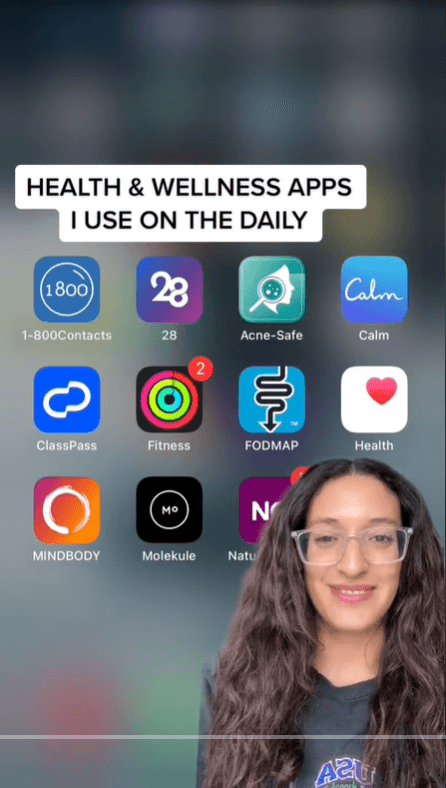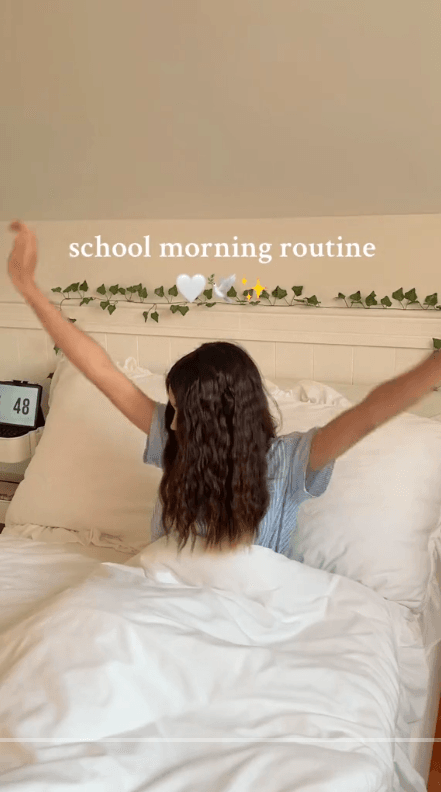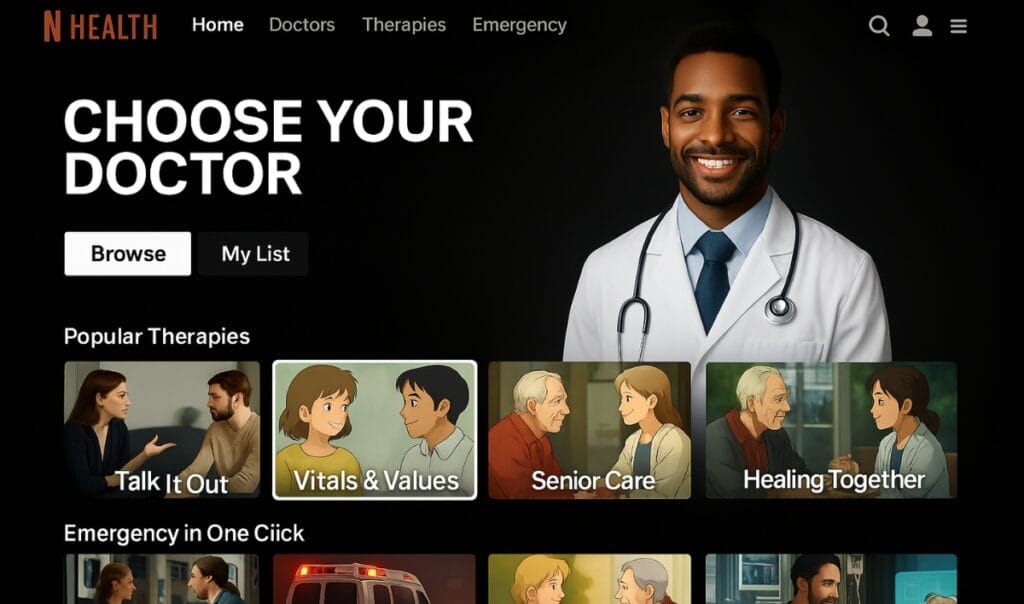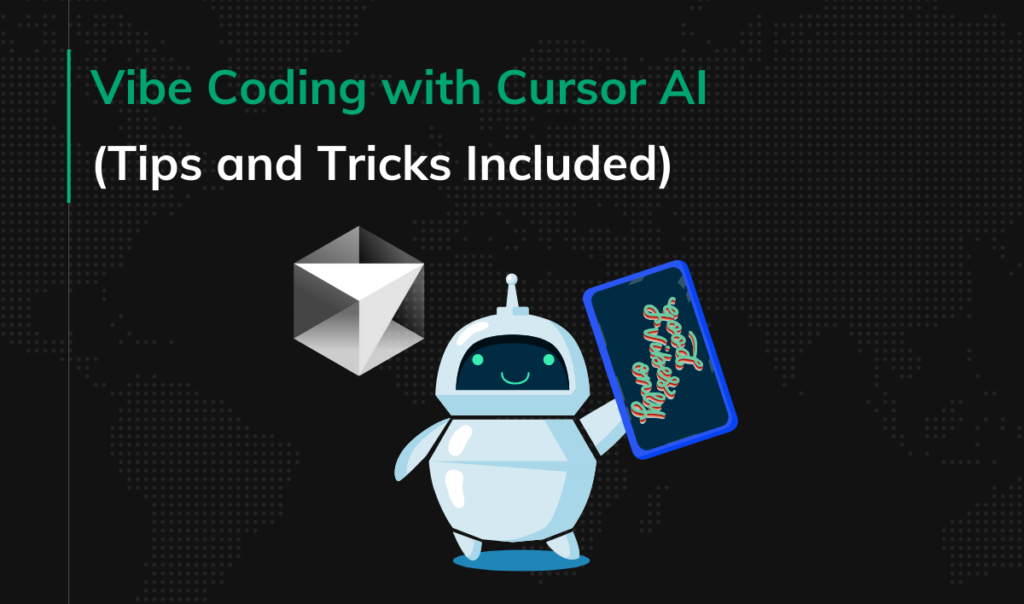Gen Z healthcare in 2025: Expectations & trends
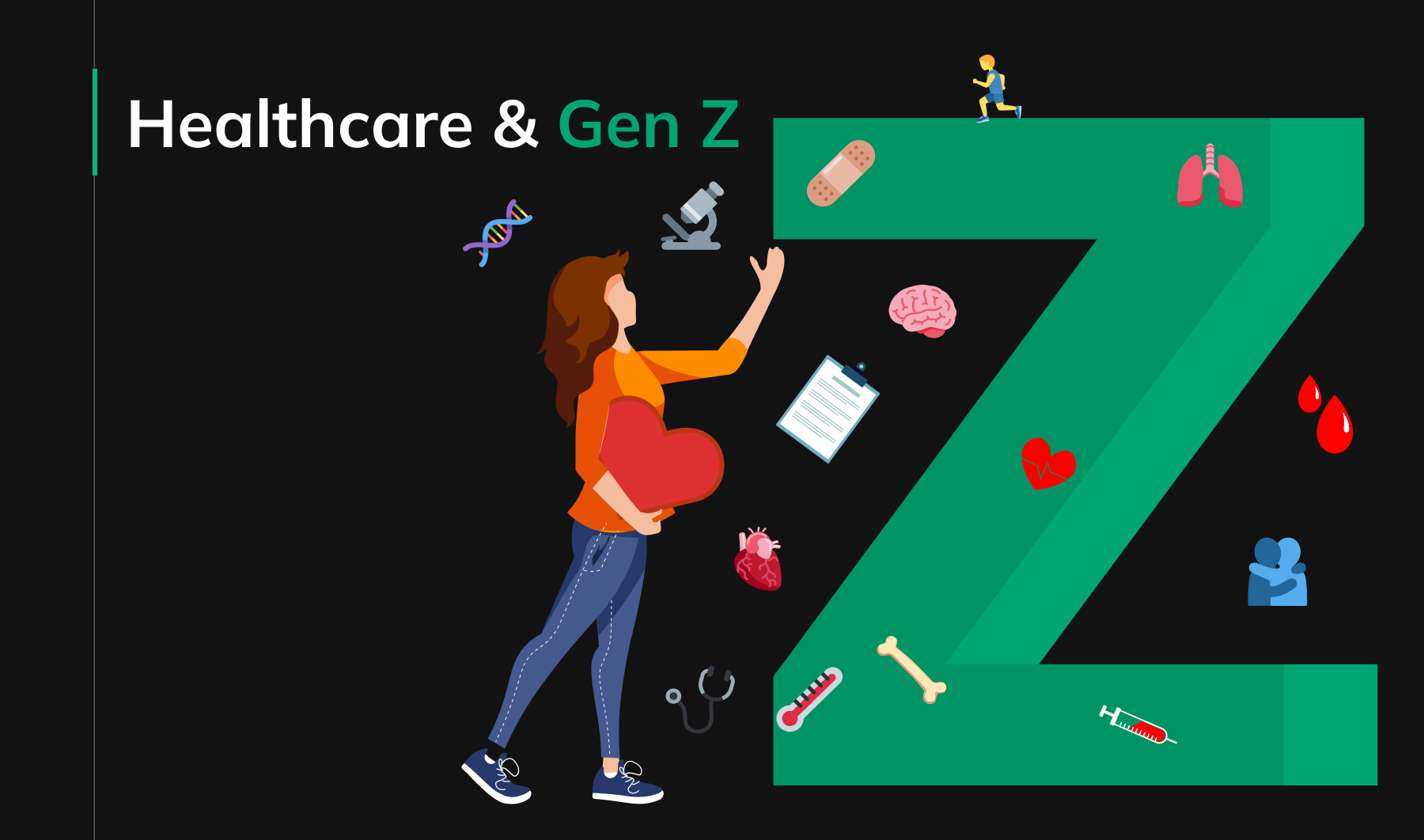
Skincare, mental health focus, TikTok doctors, DIY healthcare… What does Gen Z expect from healthcare in 2025?
Born between 1997 and 2012, Gen Z has grown up in a world where smartphones and the internet are as common as electricity. They browse TikTok for health advice and journal every day to cope with negative thoughts.
The generation comes with their distinct behaviors and preferences.
- How does Gen Z view healthcare?
- What kinds of healthcare and wellness apps get them excited?
- What do social media have to do with it?
Let’s dive in.
Who is Gen Z?
Generation Z (Gen Z or Zoomers) is often referred to as the demographic born between 1997 and 2012, making them between 13 and 28 years old in 2025.
This demographic is known for its tech-savvy nature, having been immersed in digital technology from a young age. Their values, which include inclusivity, authenticity, and a strong emphasis on mental health, significantly influence their approach to healthcare.
10 healthcare preferences of Gen Z
Gen Z wants health apps that work like their favorite social media—personalized, always available, and blending digital features with real-world care. They prioritize mental wellness and prevention over treatment.
1. Holistic care
Holistic health is a comprehensive approach to wellness that considers the
whole person rather than just treating specific symptoms. It focuses on mind, body, and spirit interconnectedness, emphasizing prevention and overall well-being.
Holistic health encompasses various dimensions:
- Physical: Nutrition, exercise, sleep, and overall body function.
- Emotional: Managing stress, building resilience, and cultivating positive emotions.
- Mental: Cognitive function, learning, and problem-solving.
- Social: Relationships, community involvement, and support networks.
- Spiritual: Purpose, values, and beliefs that bring meaning greater than oneself.
Gen Z views health as integrated well-being, a mix of physical, mental, and emotional aspects. This holistic approach is particularly clear in their focus on mental health.
📱 Above: @thegutgirlie – Another one of my favorite health and wellness apps. #fodmapfriendly #foodintolerance #digestiveissues #thegutgirlie
2. Mental health: A core priority
For Gen Z, mental health isn’t a taboo topic – it’s a core part of their overall well-being.
Gen Z is 80% more likely to report experiencing anxiety or depression than older generations (AECF), and they’re ready to pay out-of-pocket for mental health memberships (GenZHealth). Being the age cohort that most frequently reports moderate to severe symptoms of stress, depression, and anxiety (Statista), Zoomers puts a lot of stress on having their mental health intact–be it through going to therapy or downloading a mediation app.
These preferences are reflected in the following types of apps:
- Mood tracking and journaling: Apps like Gratitude allow you to log emotions and thoughts, giving insights into their mental state over time.
- Meditation and mindfulness: Quick, guided sessions that fit into busy schedules in apps like Headspace or Calm help users find moments of calm throughout the day.
- Stress management tools: Apart from medication, Headspace and Calm offer features for managing stress, such as breathing exercises or cognitive behavioral therapy tools.
3. Personalization in care
75% of Gen Z consumers said they would quit a brand if their experience wasn’t personalized. (Tulip)
On one hand, it can simply mean letting Gen Z users feed an app with their data to provide them with a more personalized experience based on that. Such personalization makes users more engaged and motivated to use the app. Examples include:
- Personalized workouts based on user data in fitness apps
- Tailored nutrition guidance in nutrition apps
- AI chatbots users can talk to in mental wellbeing apps
However, personalization in healthcare can go beyond these basic examples. With AI and machine learning, it is possible to provide customers/patients with a hyper-personalized healthcare experience within areas like drug prediction, healthcare risk assessment, and developing tailored care plans. A good example here is 23andMe. The company uses your DNA to give you personalized health & ancestry insights. In 2021-2023, there were plenty of TikTok videos with Millennials and Gen Z discussing their DNA results… although a big part of it was simply people being disappointed at their sometimes rather obvious results.
Interestingly, for Gen Z’s approach to healthcare, personalization goes beyond just medical stuff. They show a preference for providers who share similar identities. Studies found that women, BIPOC, and gender-diverse Gen Z respondents are more likely to prioritize seeing a healthcare provider that shares a similar identity.
4. Prevention, DIY health, and routine + self-care
For Zoomers, health and wellness are integral to everyday life, rather than a temporary goal or quick fix. But how do they make it a lifestyle? Here are 3 approaches to take a look at:
- Prevention
- DIY healthcare
- Routine & self-care
Prevention is the overarching goal (Gen Zers spend more on preventative measures (56%) than on episodic reasons (44%) (Linus Group)) achieved through DIY healthcare practices rooted in consistent routine and self-care.
So, how exactly does Gen Z take care of their health?
5. DIY healthcare and social media influence
Gen Z often self-prescribes and creates personalized health solutions using online resources.
This doesn’t mean they avoid professional medical advice entirely, but rather that they take a more active role in managing their health. A significant trend within this DIY approach is using social media, particularly TikTok, for health advice. McKinsey states:
Many Gen Zers also indicated their first step in managing behavioral-health challenges was going to TikTok or Reddit for advice from other young people, following therapists on Instagram, or downloading relevant apps.
Research by Hall & Partners also revealed a few interesting observations.
- Nearly 18% of the U.S. population, or some 59 million people, are turning to social media influencers on platforms like TikTok and Instagram for healthcare information and guidance in dealing with chronic conditions. Gen Z prioritizes TikTok, Instagram, and Twitter, whereas older generations lean towards Facebook.
- One-third of Gen Z turn to social media to discuss, cope with, and highlight chronic conditions and health issues.
- Among respondents with chronic conditions, 30% didn’t go to their doctor for health advice. This was highest (63%) for people with inflammatory bowel disease.
- 29% of Gen Z are seeking prescriptions for products or medications they saw online.
- One-fifth of Gen Z often ask their doctors about treatments they heard about from an influencer.
This trend is partially driven by dissatisfaction with traditional healthcare providers. About a quarter of people in the U.S. said they felt dismissed by doctors when discussing symptoms or medical concerns. However, it’s important to note that this approach comes with risks of misleading health information.
📱 Above: @drcharlesmd1 – Avoid these supplements. Episode 2! #doctor #vitamins #natural #skincare #costco #target #healthy #health
6. Daily routines and self-care practices
Gen Z places a strong emphasis on incorporating health and wellness into their daily lives through routines and self-care practices. 60% of Gen Z prioritize a healthy lifestyle over money, career, or personal enjoyment (NextWaveGenZ).
These daily routines and self-care practices often involve a mix of physical activity, nutrition, skin care, mental health exercises, and digital health tools. Gen Z tends to view these practices not as occasional health interventions, but as integral parts of their lifestyle that contribute to overall well-being. For example, a 2017 survey showed that 18-29-year-olds used sleep-tracking apps way more often (15%) than those 61 and older (3%).
Apps and features that support this lifestyle approach:
- Fitness apps: Solutions that offer workout plans, track exercise progress, and provide fitness challenges. Often involve gamification techniques to keep users more engaged.
- Nutrition apps: Apps that help track food intake, calculate nutritional values, and provide dietary guidance.
- Sleep optimization apps: Tools that not only track sleep but offer personalized tips for better rest, connecting sleep data to mood and productivity insights.
- Habit formation apps: Features that help build healthy habits through reminders and streak-tracking. They cover aspects from hydration to skincare routines. (gamification-based Habitica is a great example here.)
📱 Above: @pinkcoconutt – 5:45-7:00am school morning routine🕊️✨ #school #morning #routine #morningroutine #studentlife #aesthetic #lifestyle #pinkcoconutt #cleangirl
7. Phygical health experience
“Phygital” is a portmanteau of “physical” and “digital,” referring to a blend of digital and in-person experiences. This concept has gained traction across various industries (I’ve talked about this concept in my article about Gen Z & banking) and is now making its mark in healthcare.
Contrary to expectations, Gen Z doesn’t solely prefer digital solutions. The Linus Group study found that 66% of Gen Zers still prefer some form of in-person experience for healthcare. However, they also expect flexible communication options such as telehealth, phone calls, and texts as alternatives.
This preference for a hybrid approach is further evidenced by Gen Z’s healthcare-seeking behavior: 53% access care at pharmacies and 39% at urgent care facilities before turning to purely digital solutions.
What does it mean for healthcare providers? It’s important to provide the generation with both in-person and digital healthcare access. And, if available, ensure smooth user journeys between digital and physical touchpoints.
8. Cultural competency in care
Gen Z is often described as the most diverse generation. Zoomers place a high value on culturally competent care—healthcare that recognizes and respects diverse racial, ethnic, socioeconomic, and gender identities. As a generation shaped by social justice movements and the visibility of health disparities, Gen Z seeks providers who understand the unique challenges faced by BIPOC and LGBTQIA+ populations, as well as those navigating chronic conditions or the impact of immigrant backgrounds. This demand highlights gaps in traditional medical training, where cultural awareness has historically been underemphasized. For Gen Z, a provider’s ability to empathize and communicate with respect to their identity and lived experiences is super-important, which, again, underscores the need for equitable and personalized care.
9. Accessible healthcare
Gen Z faces unprecedented healthcare costs that shape how they access and use medical services. Unlike their parents, they’re more likely to skip traditional doctor visits or turn to digital solutions because of cost concerns:
- Approximately 39% of Zoomers don’t seek care until it’s urgent – they delay or stop care because they can’t afford it. (source)
- Nearly 40 percent of Gen Z men don’t have a primary care provider. (source)
- 8 in 10 consumers aged 18 to 24 are willing to use generative AI in health care. (source)
Instead, they’re turning to digital solutions and subscription-based healthcare services that offer predictable monthly costs. This cost-conscious mindset is driving demand for transparent pricing and flexible payment options in healthcare apps.
One company addressing this need is K Health, a primary care app offering a membership plan for $49 per month. This plan provides unlimited access to primary care, urgent care, mental health support, and pediatric care. For those preferring a non-subscription option, one-time urgent care visits are available for $73.
10. Employee healthcare expectations
When talking about Gen Z’s healthcare expectations at work, we can see the data tells a clear story: according to MarketWatch, as well as TalentLMS and BambooHR’s survey:
- 82% of Gen Z employees want mental health days and 50 are looking for mental health training.
- 62% of Gen Zs want to access and complete training from their smartphones.
- For 77%, it’s important to work for a company that cares about diversity, equity, and inclusion.
- 62% of Gen Z workers would accept lower pay for a better work-life balance.
Conclusions? Gen Z healthcare employees strongly prioritize mental well-being and work-life balance, with a clear preference for mobile-friendly training solutions and companies that demonstrate commitment to DEI initiatives.
12 Gen Z healthcare trends for 2025

Biomonitoring, women’s health, or healthy aging–the global wellness market growing at a rate of 5-10% per year, and is no stranger to fads.
How are Gen Z and Millennials going to approach healthcare and wellness in the upcoming years? Here’s a set of insights and future opportunities for entrepreneurs based on McKinsey’s latest Future of Wellness research.
- Health at home: The COVID-19 pandemic accelerated the adoption of at-home health testing, transforming our living rooms into mini-clinics.
- 26% of US consumers are interested in at-home vitamin and mineral deficiency tests.
- In China, 35% of consumers have replaced some in-person healthcare appointments with at-home tests.
- Wearable technology: Wearables are becoming increasingly popular for health and fitness tracking–expanding beyond basic fitness tracking.
- Roughly 50% of surveyed consumers have purchased a fitness wearable. 75% of surveyed consumers are open to using a wearable in the future.
- Popular wearables include biometric rings and continuous glucose monitors.
- Opportunity exists in wearables for nutrition, weight management, and mindfulness.
- Personalization with AI: “One size fits all” is out; tailored wellness is in. AI is turning mountains of biometric data into personalized health roadmaps.
- 20% of US and UK consumers, and 30% of Chinese consumers, prefer personalized wellness products using biometric data.
- Clinical efficacy over natural products: The “all-natural” craze is giving way to a demand for proven results.
- 50% of UK and US consumers prioritize clinical effectiveness in wellness products.
- Only 20% prioritize natural or clean ingredients.
- Doctor recommendations: In an age of information overload and “healthwashing,” the trusted family doctor is making a comeback as a wellness influencer. As consumers want to avoid healthwashing, doctor recommendations rank as the third-highest influence on wellness purchases in the US (after seeing products in stores and recommendations from friends and family).
- Women’s health:
- Increased spending on menopause and pregnancy-related products, including wearable devices for fertility tracking.
- There is still unmet demand in areas like menopause, menstrual care, and intimate care.
- Healthy aging:
- 70% of UK and US consumers, and 85% of Chinese consumers, have increased spending on healthy aging products.
- Over 60% of consumers find products and services for healthy aging very important.
- The focus is on preventive solutions and improving longevity.
- Weight management:
- 60% of US consumers are trying to lose weight.
- In-person fitness:
- 50% of US gym-goers see fitness as a core part of their identity. 56% of Gen Z in the US consider fitness a very high priority.
- Emphasis on personalized workout plans, fitness classes, and community building.
- Gut health:
- 80% of consumers in China, the UK, and the US consider gut health important.
- Over 50% plan to prioritize gut health more in the next 2-3 years.
- There is a demand for more products supporting gut health, such as probiotics and personalized nutrition.
- Sexual health:
- 87% of US consumers have maintained or increased spending on sexual health products.
- Sleep:
- Despite high priority, there is a significant unmet need for effective sleep solutions.
- 37% of US consumers desire more sleep and mindfulness products.
- Few tech players and brands have created comprehensive ecosystems for improving sleep quality.
See also: 19 digital health trends for 2025 and beyond
Innovation in healthcare, especially for Gen Z, thrives on bold ideas and forward-thinking solutions. It’s no surprise that some of the startups driving these changes are also featured in our list of top startups to watch in 2025.
While Gen Z is currently shaping the digital healthcare landscape, it’s crucial to keep an eye on what comes next. Generation Beta, born from 2025 onwards, will grow up in a fully AI-native world—and their expectations will be even higher.
How to leverage social media & microaesthetics for Gen Z-oriented product marketing?
Social media is an important part of Zoomers’ online presence, and, as mentioned before, a source of health advice. How can companies leverage them to market healthcare products? There are plenty of “traditional” ways to promote a product with social media: content showcasing product benefits, tutorials, or demos, collaborating with influencers, or running contests and giveaways.
However, let’s discuss one specific aspect that has shaped post-Covid social media but is not that obvious: micro-aesthetics.
Micro-aesthetics
A micro-aesthetic (micro-trend) is a fast-rising, often consumerist, highly specific online style shared by a niche group, defined by its unique look and feel. Easy come, easy go; sources indicate micro-aesthetic longevity being as short as around one month–because that’s usually how long they can stay on TikTok’s “For You” page.
Micro-aesthetics are constantly evolving. Examples? #dark academia, #cottagecore, or #thatgirl
What do micro-aesthetics mean from a product perspective? Building an entire product around one could be risky, but understanding and leveraging micro-aesthetics can be crucial for product marketing:
- Aesthetic-aligned social media content: Create short-form videos (TikTok, Instagram Reels) that align with current micro-aesthetics, showcasing how your app enhances lifestyle trends (e.g., a “Day in the Life” video using the #thatgirl aesthetic).
- Influencer collaborations: Partner with influencers already creating content within specific micro-aesthetic trends to produce authentic, trend-aligned content featuring your app (e.g., a Dark Academia influencer demonstrating how your mental health app supports study sessions).
- Aesthetic-inspired app features: Implement limited-time features, themes, or challenges inspired by current micro-aesthetic trends to boost engagement (e.g., a “Cottagecore Wellness Week” with nature-inspired meditation sessions and rustic recipes).
Gen Z healthcare FAQ
What features does Gen Z look for in healthcare apps?
- Mental health support: Access to therapy, mood tracking, meditation, and stress management tools.
- Personalization: Tailored health insights, fitness plans, and dietary recommendations based on user data.
- Telehealth services: Virtual consultations, chat features, and easy access to healthcare professionals.
- Gamification: Rewards, challenges, and achievements to keep users motivated and engaged.
- Integration with wearables: Syncing health data with devices like Apple Watch, Fitbit, or other fitness trackers.
- Educational content: Bite-sized, easily digestible health and wellness information in videos, blogs, or interactive formats.
- Medication and appointment management: Scheduling appointments, prescription reminders, and tracking medication adherence.
- AI-driven insights: Predictive analytics and intelligent suggestions for improving health outcomes.
- Accessibility features: Inclusive design with text-to-speech, diverse language support, and features for users with disabilities.
- Affordability and transparent pricing: Free or low-cost options with clear explanations of pricing and insurance compatibility.
What are the most popular healthcare apps among Gen Z?
- Mental Health Apps
Mindfulness tools are a hit for managing stress and improving mental health. - Fitness Trackers
Staying active matters—Gen Z prioritizes fitness. They love apps that track workouts and steps, often with fun challenges to keep it engaging. - Nutrition Tools
Apps that help track meals and suggest personalized diets are popular for supporting their holistic health goals. - Telemedicine Platforms
Virtual doctor visits? Yes, please! Telemedicine apps are a favorite for their convenience. - Wearable Integration
Tech meets health—Gen Z uses wellness apps and fitness trackers to monitor sleep, heart rates, and more.
How do Zoomers approach wellness?
McKinsey states clearly: Gen Z is obsessed with wellness.
- Wellness is a Priority
Over half (56%) of Gen Z in the U.S. consider fitness a “very high priority,” outpacing the 40% average for older generations. They’re also investing more in mindfulness-related products like meditation apps, therapy sessions, and wellness experiences. - Appearance and Overall Health
Gen Z’s wellness spending often focuses on maintaining their looks and general health, signaling an interest in both self-confidence and long-term well-being. Preventive health solutions are popular, even for issues traditionally linked to aging. - COVID-19’s Influence
Growing up during the pandemic heightened their awareness of physical and mental health, motivating them to prioritize wellness earlier than previous generations. - Social and Digital Inspiration
Platforms like TikTok (FitTok, with over 64 billion views) make wellness accessible and trendy, offering workout tips, meal plans, and fitness challenges that resonate with Gen Z’s love of social media. - Community-Driven Wellness
Gen Z values “third places” like gyms and fitness classes to foster connections and stave off loneliness, making social wellness just as important as physical fitness. - Nature and Sustainability
Activities like forest bathing, plant-based cooking, and fruit harvesting align with their eco-conscious values, blending health with sustainability. - Wellness Beyond Products
Gen Z wants wellness everywhere—from their workplace (gym stipends, mental health resources) to their travel experiences (hotels with upgraded wellness amenities).
Conclusion. How to design healthcare apps for Gen Z?
Designing healthcare apps for Gen Z requires understanding their preferences and health priorities.
Several types of health apps may resonate with this audience:
- Mental health apps featuring meditation and mood tracking,
- Physical wellness apps integrating fitness, nutrition, and sleep monitoring,
- Holistic health apps offering all-in-one solutions, or
- Specialized apps addressing specific needs like women’s health or skincare.
When developing these apps, consider Gen Z’s inclination towards DIY healthcare and social integration. To enhance engagement, incorporate social media-style elements, gamification features, and tools that promote daily self-care routines. It’s also important to blend digital and in-person healthcare experiences, as Gen Z values this “phygital” approach.
Need help with Gen Z-oriented app design? Whether you’re looking to promote mental wellness, track physical fitness, or manage chronic conditions, we can help you design and develop a health app that truly connects with Gen Z.

